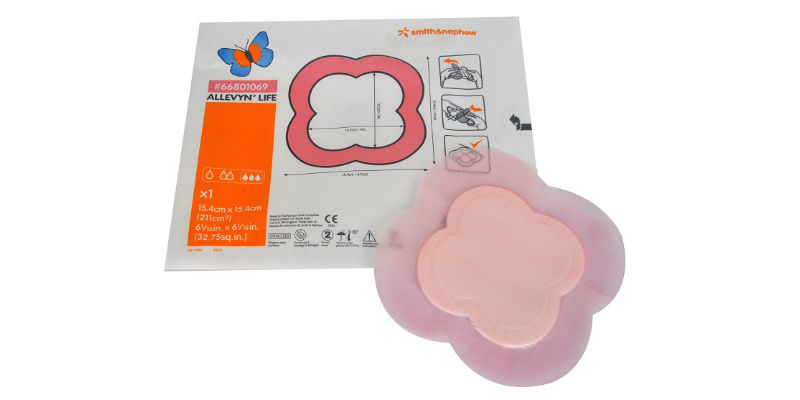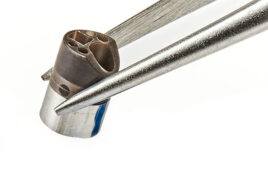A comprehensive ulcer prevention program, which includes the use of a Smith & Nephew silicone foam dressing, can significantly decrease hospital-acquired pressure ulcers (HAPUs), according to a published research paper.
The two-year study was conducted in an adult intensive care unit (ICU) at Eskenazi Health in Indianapolis, IN and published in the American Journal of Critical-Care Nurses.
The research emphasizes that hospitals adopting a standardized protocol for the prevention and treatment of HAPUs may see a potential cost benefit of such prevention. At the end of the first year, the prevention program demonstrated a 69 percent decrease in the pressure ulcers.

The ALLEVYN Life silicone foam dressing helps in the treatment and prevention of hospital-acquired pressure ulcers. (Credit: Smith & Nephew)
The estimated potential cost saving for the Eskenazi Health ICU was nearly $1 million, and the positive results in the ICU have led to the approval of a hospital-wide prevention program.
ALLEVYN Life, a silicone foam dressing also indicated for the treatment and prevention of pressure ulcers, developed by Smith & Nephew, was introduced to the protocol as part of the standard prevention method three months into the program.
“This study validates the need for a comprehensive, proactive, collaborative prevention program in hospitals,” Rachel Culpepper, a registered nurse at Eskenazi Health, said. “Although it is difficult to isolate the effects of individual program components, silicone foam dressings can complement an existing pressure ulcer prevention program, and are believed to contribute to the reduction in HAPUs.”
Additional components to the prevention program include educating hospital staff members and a focus on adherence to protocols for patient care. Both have proven to be part of an effective program for reducing the incidence of pressure ulcers in the ICU, according to the study.




